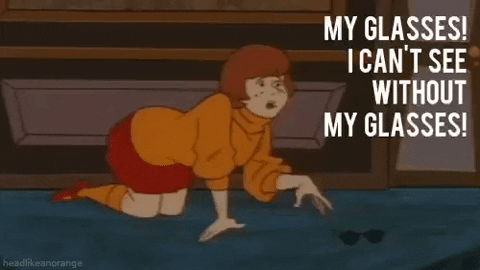Tired of glare coming off your glasses every time you’re on a Zoom call? Are glasses giving you a headache that won’t seem to go away?
LASIK is one of those procedures that you never think you’ll get until you find out that you actually qualify for it. So what goes into being a good candidate for it anyway? Keep reading to find out more!
1. You’re 18 or older

Sorry, teenagers, but if you’re under the age of 18 years old, you can’t get LASIK. The FDA only approves LASIK for those in this age range.
A big reason for this is due to the eyes needing time to stabilize and finish developing. If you’re 15 or 16 years old, your eyes could continue developing for another three years!
Many LASIK surgeons even recommend waiting to have LASIK until you are in your mid to late twenties. It’s not like there’s a magic switch that goes off once you turn 18.
Your eyes could keep developing well into your early twenties. With a procedure like LASIK, you don’t want to have it too early and then have your vision corrected at the wrong point.
2. Your prescription has been stable for at least 2 years before LASIK

One sign that your eyes might still be changing is if your prescription hasn’t stabilized. An unstable prescription will continue changing when you go to see your eye doctor.
You likely wear glasses or contacts if you’re contemplating getting LASIK, so if you have a prescription that you need to keep updating, you need to wait on getting LASIK. Once your prescription has stopped changing, you can start thinking about if and when you can get LASIK.
3. You’re not currently pregnant or nursing

When you’re pregnant, your body goes through a lot of changes. Yes, even your eyes and your prescription are affected! Hormones released during pregnancy can change your vision.
Your changing vision is not stable enough to have LASIK, which is why pregnant women shouldn’t have the procedure. Now, if you’re nursing, you’d think you’re in the clear, but that’s not the case.
If you’re nursing, your eyes could undergo temporary changes due to lactation. It’s not terribly common, but it can happen, and it’s something that you want to avoid.
Another reason to not have LASIK while you’re nursing is the eye drops given after LASIK to prevent inflammation and infection could get passed to your newborn through your breastmilk. To be as safe as possible, wait at least three months until you’ve finished breastfeeding before having LASIK.
The other thing you should keep in mind is that your vision could change during any pregnancy you have. You may want to wait to have LASIK until you’re sure you aren’t having any more children.
4. You don’t have any autoimmune conditions

To be a good candidate for LASIK, you don’t need to be in perfect health, but there is one thing, in particular, that’s important when it comes to your health. If you have any autoimmune conditions like lupus or rheumatoid arthritis, LASIK may not be the right procedure for you.
You must be able to heal in a normal amount of time after having LASIK. When you have an autoimmune condition, it becomes a lot harder for the body to heal.
You may also experience other severe complications. This is why it is so important to disclose your full medical history when your eye doctor asks for it.
5. Your prescription is within certain limits

LASIK is a lot of things, but it’s not a miracle worker. Not everyone that wants LASIK can get it. To be a good candidate for this vision correction procedure, your prescription needs to be within certain limits.
The limits for LASIK are in diopters, which is a metric unit that indicates the strength of the eye or lens. They include:
Up to +6.00 diopters of hyperopia, which is for those that are farsightedUp to 6 diopters for patients with astigmatismUp to -12.00 diopters for those that are nearsighted
If your prescription falls outside of this range, you may want to consider a different procedure like PRK instead. Talk to your eye doctor about your options and their recommendations.
6. Your pupils are a normal size

Another factor used for LASIK candidacy is the size of your pupils. This isn’t something that you can determine by looking in a mirror.
During your LASIK consultation at Chicago Cornea Consultants™, the size of your pupils is one of the many things measured and tested. The size of your pupils matters!
If your pupils are larger than normal, you may be at an increased risk of developing side effects after LASIK like blurry vision or poor night vision. Not everyone with large pupils is a bad candidate for LASIK.
It is just one of the many factors taken into consideration when your LASIK surgeon determines if you’re a good candidate or not.
7. Your corneas are thick enough
When you get LASIK, it’s a permanent procedure that involves reshaping your cornea. The cornea is the surface of the eye that helps focus light and create an image on your retina.
If you have a thinner than normal cornea, getting LASIK may turn out to be unsafe for you! When you reshape the cornea, you’ll have a tiny amount of corneal tissue removed.
This is what allows you to have your refractive errors like nearsightedness, farsightedness, and astigmatism corrected. But if your corneas are too thin, removing even a tiny amount of tissue may lead to serious complications after LASIK.
8. You have realistic expectations about LASIK

With any surgical procedure, it’s important to know what to expect. The same is true with LASIK.
The procedure does have a 96% satisfaction rate with patients, but you need to be realistic about what your results will be like. There is no guarantee that you’ll end up with 20/20 vision, though many patients do.
You also need to know what to expect after the procedure to recover safely. The recovery after LASIK is minimal, with most patients going back to work after only a day or two.
If you ask your eye doctor at Chicago Cornea Consultants™ any questions that you have, you’ll be in great shape before undergoing LASIK!
Ready to find out if you could be a candidate for LASIK? Schedule your consultation at Chicago Cornea Consultants™ in Chicago, IL today!
2020 may be almost over but why not enjoy the rest of it with crystal clear vision?

